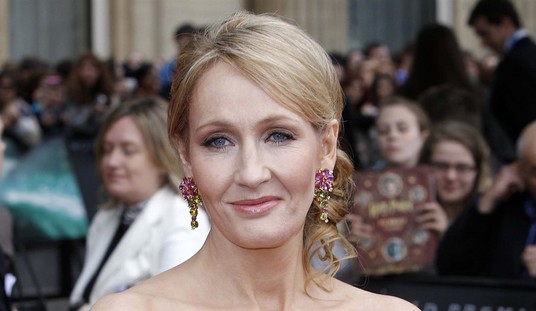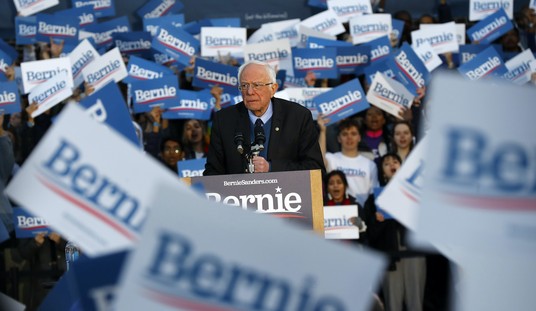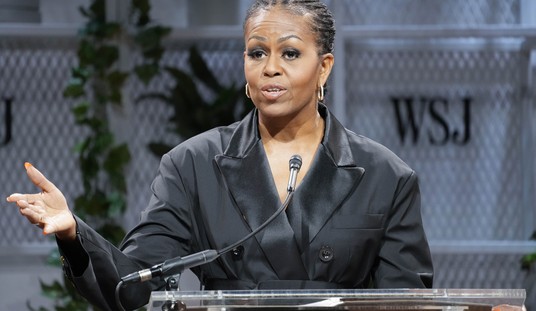By this time, Americans have gotten used to the idea of negotiating with the Taliban in an effort to wind down the war in Afghanistan. The outrage over their role as protector of al-Qaeda before and after the 9/11 attacks has given way to a sense of inevitability that the Taliban will not be crushed out of existence, and a realization that a peaceful Afghanistan requires them to be integrated into the political system.
But why invite them to Camp David — in the same week as the 18th anniversary of 9/11? That’s a question being asked by both Democrats and Republicans after Trump revealed the plans over the weekend:
The Trump administration is facing bipartisan backlash after a plan to secretly host members of the Taliban at Camp David just days before 9/11.
There are new revelations there was internal discord within the administration over the idea. @kwelkernbc has the latest. pic.twitter.com/1FNhCFrfRh
— TODAY (@TODAYshow) September 9, 2019
President Donald Trump is facing backlash after announcing he planned to hold a secret meeting with the Taliban at Camp David this weekend but canceled it over attacks overseas that left 12 dead, including one American.
Republican and Democratic leaders sharply criticized the president over two main concerns: bringing members of the Taliban to the U.S.—specifically to Camp David, a presidential retreat for presidents used for administrations, and the timing of the meeting — just days before the 18th anniversary of the 9/11 attacks.
Some of this comes from Trump antagonists, such as Eric Swalwell and Justin Amash, who asked on Twitter, “How about we end the war without inviting the Taliban to dinner on the week of 9/11?” However, Liz Cheney isn’t exactly a Never Trumper, and she ripped the idea as well. Cheney did try to couch it in praise for Trump in changing his mind:
Rep. Liz Cheney, one of most powerful House Republicans whose father was vice president during the 9/11 attacks, said “no member of the Taliban should set foot” at Camp David.
“Camp David is where America’s leaders met to plan our response after al Qaeda, supported by the Taliban, killed 3000 Americans on 9/11,” said Cheney, R-Wyoming, on Sunday. “No member of the Taliban should set foot there. Ever. The Taliban still harbors al Qaeda.”
Rep. Adam Kinzinger (R-IL) was less gracious:
Never should leaders of a terrorist organization that hasn’t renounced 9/11 and continues in evil be allowed in our great country. NEVER. Full stop. https://t.co/pagnRFuFtc
— Adam Kinzinger (@RepKinzinger) September 8, 2019
The Washington Post sees this as a food fight between Secretary of State Mike Pompeo and national security adviser John Bolton. Bolton won this round, their sources claim, but Pompeo’s winning the overall war, so to speak. Even with the cancellation of the Camp David meeting, Trump still plans to move forward on troop drawdowns, and the Camp David meeting was Trump’s idea to get more concessions:
But others said that Trump was likely to move ahead with the planned initial withdrawal, regardless of the apparent collapse of negotiations. One official familiar with White House deliberations cast Trump’s cancellation of the meeting — which the president said was in response to the death on Thursday of a U.S. soldier in a Taliban attack, one of 16 killed since the beginning of this year — as part of a broader victory for Bolton.
Trump was the main person pushing for the Camp David meeting, according to a senior administration official who, like others who discussed the sensitive issue, spoke only on the condition of anonymity. Comparing the initiative to Trump’s personal meeting with North Korean leader Kim Jong Un, and his stated desire to meet with Iranian President Hassan Rouhani, this official said Trump thinks his personal style can persuade anyone, and that he has seen the possibility of a substantial Afghan withdrawal as a major plus for his reelection campaign.
While many in the administration have questioned the Taliban talks, Pompeo and Bolton have been at loggerheads over this issue and others, with Bolton, a well-known hawk, charging that Pompeo was trying to “box him out” of decision-making on Afghanistan.
Bolton had expressed his reservations about the deal at the time Khalilzad briefed Trump on its terms in late August, according to the official familiar with White House deliberations.
Trump’s meetings with Kim and proposed meeting with Rouhani are controversial for arguably giving rogue state leaders more credibility as statesmen. At least those cases involved actual state leaders, however, and the need to head off nuclear proliferation in the hands of rogues. The Taliban are neither state leaders nor nuclear threats. Why would the president of the US meet with them at all? It’s not diplomatically proportionate no matter where it takes place.
Hosting the Taliban at Camp David is not just diplomatically puzzling, it’s politically nutty. Americans might be tired of fighting in a tribal war in which the Taliban/Pashtun cannot be defeated, but that doesn’t mean Americans have forgotten 9/11 and the Taliban’s role in it. The best analogy to 9/11 is Pearl Harbor, and the war that started came to an end with a surrender by Japan on an American carrier off their shoreline, negotiated by our military. We didn’t invite Hirohito to Camp David for discussions. It’s true that Camp David has been used as the venue for peace negotiations in the past, but not with an antagonist who helped facilitate the murder of 3,000 American civilians with attacks on our largest city and our capital.
And scheduling it for the week of 9/11? That’s so tone-deaf that it calls into question the competency of everyone involved in it. A Trump-Taliban summit at Camp David is a dumb idea on any date but especially this week. It’s getting bipartisan backlash because it deserves bipartisan backlash. Let’s hope it’s enough to convince the White House to take that page out of the playbook.








Join the conversation as a VIP Member